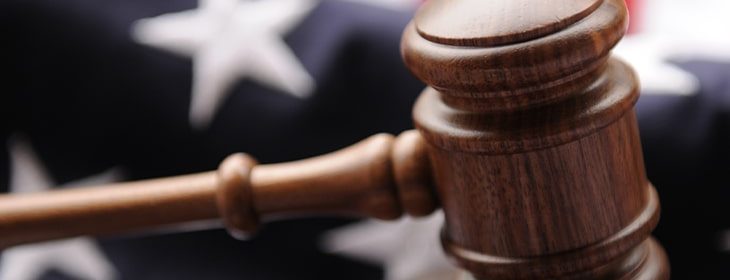SEC vs Ripple: US judge denies parties’ motions even as both sides claim victory

A U.S. judge has dismissed motions filed by both the Securities and Exchange Commission (SEC) and Ripple, even as both sides claimed the rulings were a win for them.
Judge Analisa Torres of the Southern District of New York tossed out a motion filed by the SEC seeking to dismiss Ripple’s fair notice defense in which it claims that the regulator failed in its duty to inform the company that it was violating securities regulations.
In her ruling, Judge Torres said Ripple is entitled to assert its fair notice defense and have it adjudicated before the SEC may impose liability.
For the judge to side with the SEC on its motion, it would have had to show that there is no question of fact and/or law which might allow the defense to succeed and that it would be prejudiced by the inclusion of the defense.
Judge Torres cited a precedent set in a 2012 ruling between Fox Television and the FCC stating: “A fundamental principle in our legal system is that laws which regulate persons or entities must give fair notice of conduct that is forbidden or required.”
As such, Ripple can still push on with its fair notice defense and can use it to win the lawsuit.
Ripple was quick to claim the ruling was a victory for the company. CEO Bad Garlinghouse described it as a “huge win for Ripple” which would draw more attention to the case.
Stuart Alderoty, the general counsel for Ripple, commented, “Good to see the Judge rejecting the SEC’s attempt to prevent Ripple from pursuing its fair notice defense. It’s even more imperative that the sun sets on the SEC’s ‘regulation by enforcement’ approach.”
And while Ripple celebrated the ‘win,’ it also saw its own motion denied by Judge Torres. Garlinghouse and former CEO and now chairman Chris Larsen had filed a motion seeking charges against them dismissed. The two are charged with aiding and abetting Ripple’s securities violations with the SEC saying they knew the company was breaking the law.
The SEC described this ruling as a win for them, despite having their motion denied. In a letter to Judge Sarah Netburn of the Southern District of New York, the watchdog said the ruling has made documents under the deliberative procedure privilege (DPP) irrelevant to the case. Ripple has been going after documents that can show internal communications between SEC staff regarding whether they considered XRP and other digital assets as securities. The regulator has been fighting back claiming they are protected under the DPP privilege.
“…the Order answers any question as to whether the SEC’s internal documents are relevant to the Individual Defendants’ scienter. They are not,” it said.
Judge Torres ruled that the SEC needs to prove that the two defendants knew or recklessly disregarded that Ripple violated securities laws, the watchdog claims. Rather, it only needs to prove that the two knew the facts that constitute a violation, regardless of whether the regulator had issued a direct notice regarding XRP being a security.
Judge Torres’ order makes it clear that the SEC’s internal documents have no relevance in the defendants’ case since “nonpublic SEC documents cannot shed any light on whether Individual Defendants knew or consciously disregarded the facts that constitute Ripple’s alleged violation.” This extends to William Hinman’s speech as well, the agency claims.
As CoinGeek has previously reported, Ripple has put a 2018 speech by Hinman, who was a top-level SEC official then, on the spotlight for absolving Ethereum and BTC of security status. Ripple posed the question – if Ethereum isn’t a security, then why is XRP?
“The Court should not order the production of the SEC’s internal documents regardless of whether they are protected by DPP, where Defendants cannot show that the internal documents are relevant to any of their defenses,” the SEC concluded.
Follow CoinGeek’s Crypto Crime Cartel series, which delves into the stream of groups—a from BitMEX to Binance, Bitcoin.com, Blockstream, ShapeShift, Coinbase, Ripple, Ethereum,
FTX and Tether—who have co-opted the digital asset revolution and turned the industry into a minefield for naïve (and even experienced) players in the market.
Source: Read Full Article
